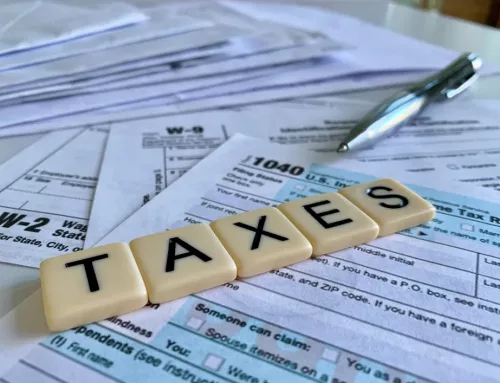Are you struggling to pay your bills due to a sudden loss of a job or unexpected illness? Overwhelming debt may cause you extreme hardship and stress. When bankrupt individuals struggle to repay debts to creditors, the last resort to solve financial problems is to file for bankruptcy. Filing bankruptcy will allow you to reorganize your finances, pursue debt settlement, and pay off a creditor.
Bankruptcy filings are generally governed by federal law; however, bankruptcy laws may vary from state to state. In Washington, there are certain bankruptcy rules that you need to follow. A credible Tacoma bankruptcy attorney can help you file for bankruptcy in compliance with state law.
This article will cover the important things that you need to know and understand before filing for bankruptcy. You’ll learn about the following information:
- Bankruptcy Chapters
- Requirements for Bankruptcy Filing
- Difference of Secured and Unsecured Debts
- Steps in Bankruptcy Filing
- Bankruptcy Exemptions in Washington
…
…
…
…
Bankruptcy Chapters
Before you declare bankruptcy, you need to know how to choose the most appropriate bankruptcy type that will help you pursue total debt repayment. Chapter 7 and Chapter 13 are the two common types of bankruptcy.
Chapter 7
Chapter 7 bankruptcy involves the process of “liquidation” which means converting any property or an asset into cash by selling it. This is considered the fastest type of bankruptcy since most of the unsecured debts such as credit card debt, personal loan, and medical debt are considered as “forgiven”. With a Chapter 7 bankruptcy, you ask the bankruptcy court to eliminate (discharge) the debts you owe. However, keep in mind that not all debts are dischargeable and not everyone can be eligible to file for Chapter 7.
Chapter 13
Chapter 13 bankruptcy (also called “wage earner” or “reorganization” bankruptcy), allows you to restructure and reorganize your debts through a repayment plan that will last for three to five years. This chapter is best for you if you have assets and properties that you want to keep or a mortgage that you want to get current on.
When you file for bankruptcy, a court order called the “automatic stay” immediately stops collection actions, foreclosures, or lawsuits being taken against your property by a creditor, collection agency, or government entity. This prevents debt collectors from harassing you and gives you the breathing room you need to resolve your debt problems.
…
…
…
…
Requirements for Bankruptcy Filing
When you decide to file for bankruptcy, you are required to pass the “means test”. A reliable Tacoma bankruptcy attorney can help you undergo the means-testing. This test will determine if you are qualified to file for bankruptcy Chapter 7 or Chapter 13. According to the Bankruptcy Code, if you want to file Chapter 7 bankruptcy, you must prove that you don’t have the means to pay all your debts.
To file under chapter 7 in Washington you must pass one of two means tests. Your family income will be compared to the median income in Washington. If the income of your family falls below the median income, it means that you pass the first means test. On the other hand, if your family’s income is greater than the median income, you may still be qualified to pass the second means test after you deduct the allowable living expenses.
In contrast, if you choose to file Chapter 13 bankruptcy, you are not required to pass the “means test”, but a similar computation will be used to calculate your monthly payment and the length of the repayment plan. The means test will consider your income, assets, expenses, and unsecured debts. If you fail to pass the means test, your Chapter 7 bankruptcy may either be dismissed or converted into a Chapter 13 proceeding.
…
…
…
…
Difference of Secured and Unsecured Debts
The amount of debt to be discharged in bankruptcy depends on its type – the secured and unsecured debts. It is important to know the difference between the two types of debt.
Unsecured debts such as credit card bills and medical bills are both discharged with bankruptcy filings, which means you do not have to pay these debts.
When you file for a bankruptcy petition under Chapter 7, debts are discharged once the bankruptcy court approves your bankruptcy case. If you choose to file under Chapter 13, you must continue making payments throughout your payment plan. Once you have completed your repayment plan, unsecured debts will then be eliminated.
However, not all types of debts may be discharged when you declare bankruptcy. Non-dischargeable debts include student loan debt, certain tax debt, car loans, child support, and alimony. Some of the secured debts may be reduced under Chapter 13 through a “cramdown”, in which the approved repayment plan reduces the amount you owe. Secured debt is often the result of a loan transaction giving your lender the right to seek a lien on the property that you used as collateral in case you default on the loan.
…
…
…
…
Steps in Bankruptcy Filing
Filing bankruptcy can be financially, physically, and emotionally draining. Therefore, it is advisable to seek legal help from a qualified Tacoma bankruptcy attorney to guide you throughout the bankruptcy process. Here are the steps in filing bankruptcy:
- Choose the best bankruptcy chapter for you
- Prepare all necessary financial documents
- Take a credit counseling course
- Fill out the official bankruptcy forms and file a complete paperwork
- Attend the 341 creditor’s meeting
- Attend the confirmation hearing and make plan payments (for Chapter 13)
- File a debtor’s education course certificate
- Receive your debt discharge
…
…
…
…
Bankruptcy Exemptions in Washington
Declaring bankruptcy does not require you to give up everything that you own; however, not all your assets can be fully protected from liquidation. Your assets and properties may be classified into exempt or nonexempt property.
Exempt properties are assets that you can keep and protect from creditors. Meanwhile, the nonexempt properties are assets that you need to surrender. If you choose to file Chapter 7 bankruptcy, your appointed bankruptcy trustee will liquidate your nonexempt assets to pay off your debts from your creditor. For Chapter 13 bankruptcy, you will be allowed to keep your non-exempt assets but you need to repay the value of your property within three to five years.
If your property falls within one of the bankruptcy exemptions in Washington, then you can protect it from creditors whether it is secured or unsecured debt. Here are some of the exemptions:
Homestead Exemption
You are allowed to exempt up to $125,000 of the equity in your principal residence. That doubles to $250,000 when a married couple who owns the home decides to file for joint bankruptcy.
Motor Vehicle Exemption
You are allowed to exempt up to $3,250 of the value of one motor vehicle.
Wage Exemption
You can exempt up to 75% of your weekly disposable income or up to 35 times the federal hourly minimum wage each week (whichever is greater).
Tools of the Trade Exemption
You can exempt up to $10,000 of the tools, instruments, and materials you need to carry out a trade or profession to support yourself.
Wildcard Exemption
You can protect up to $3,000 of any type of personal property.
The Role of a Bankruptcy Lawyer
Facing financial challenges is a part of life. During this difficult time, filing for bankruptcy can be one of your debt-relief options to pay back what you owe to a creditor. Bankruptcy can help you live a debt-free life and have a fresh start. Debt repayment and reorganization of your finances shall be your priority.
If you are struggling with debt and considering a bankruptcy filing, do not hesitate to seek legal advice from our experienced Tacoma bankruptcy attorneys at Jones Legacy Law. Contact our bankruptcy law office to schedule a consultation. Our bankruptcy law firm will help you determine the bankruptcy chapter that you will file, keep the assets that you want, and create an affordable repayment plan to pay off all your debts. We will be with you every step of the way as you recover from your financial losses.




